Smart Nursery

Here in Smart Nursery, we use “Reggio Emilia” approach for the nursery group with the focus on three main areas of development, i.e. personal, social and emotional development, general communication development and speech and physical development.
The toddlers undergo an adaptation period during the transition from a house to a kindergarten. For this occasion, we provided for every child to have by their side a “key person”, educators taking care of the child, to whom the child can rely on to and whose presence will ease this period. The task of the key person is to ensure a direct connection between the kindergarten and house, i.e. a child and a parent. Therefore, the key person represents the main contact for the parents during the period of adaptation.
Children are involved in various activities in the nursery with an aim of providing opportunities for children to explore and discover, following their individual timing. Children are encouraged and supported by the Smart team during the work with them. The Smart team is comprised of graduate and postgraduate teachers of preschool education, pedagogues, psychologists as well as the medical workers.
In our work, we nurture and support children’s natural curiosity, as well as the specific approach of each child to the play. The gained experience in connection to the particularities of each child is included in the planning and execution of common daily activities.
We strongly believe that the knowledge of the mother tongue is of vital importance for the development of the child’s self-confidence in all aspects of learning. Children will be encouraged to study English while staying in the English speaking environment. Our educators are encouraging studying of child’s mother tongue, as well as the English through various activities such as music, stories, and role – plays.
Children get acquainted with colours, shapes, differences, living world, objects and numerous other objects of interest through numerous activities.
We encourage children to develop independence by establishing routines such as mealtimes, bedtime or play time.
Smart Kindergarten

Children of three to five years old attend the program “Reggio Emilia” and apart from the strong focus on all aspects of the basic development pronounced for nursery age, particular emphasizes is on the work in the specific areas of framework development.
In working with children of three to five years old, we are committed to working on specific areas of framework development of children, such as literacy, numeracy, understanding of the world, expressing through art and design, imitative and symbolic games, logical and constructive games.
As children develop, their curiosity, interest, and fascination grow as well. For this reason, we adjust our curriculum to the interests of the children, using specific themes that are used to supplement and extend the learning and activities in order to keep up with the children’s ideas.
The kindergarten groups are organised on the “open space” principle during the daytime. This approach allows children even wider choice of activities and interest centres, as well as the possibility of playing with children of older and younger age.
The Smart team pays special attention to group play and socialisation, verbal expression of emotions, polite dealings with others and the peaceful resolutions of the different situations through a conversation.
We also pay a lot of attention to studying English as much as we nurture attitude towards their native language in this age while using the space that is stimulative for learning.
Preschool

The Preschool program of the Smart team is designed to ensure help to a child in the best possible way in the transitional period from kindergarten to school. Children at this age learn and improve a variety of life skills they need to succeed in school.
The curriculum is enriched by activities carried out in the areas of language, numbers, music, art, all in accordance with the program, aiming to prepare children better for the formal school education. Through these activities, children learn letters and the alphabet, numbers and simple math, as well as the reading and writing skills.
The transition from pre-school age to primary school is a time of change and it is important to children, as well as to their parents, the reason why our educators take care of each child, motivating them it to use its unique potential.
